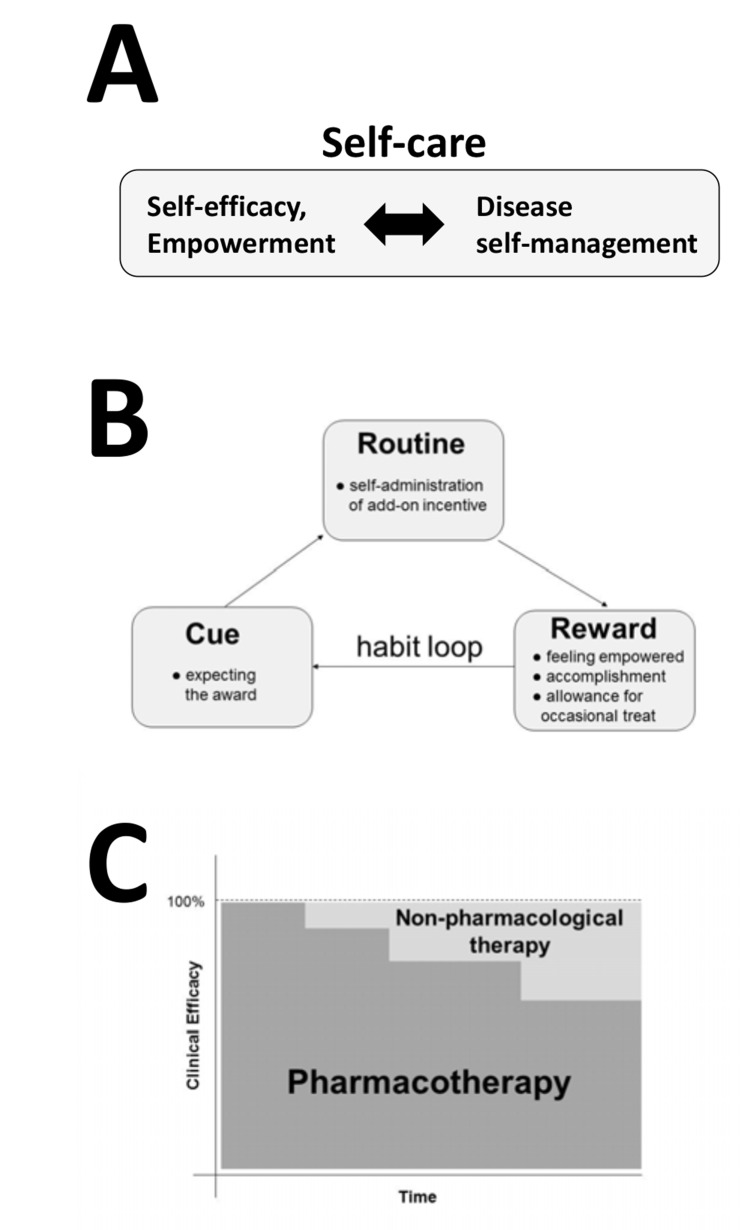Fig. (5).
Roles of self-care and the reward system in the incentivized therapies. Due to the long duration of chronic medical conditions, healthy habits and self-care can slow down progression of the chronic disease, improve the therapy outcomes and the health-related quality of life after reaching remission. (A) Self-care consists of disease self-management (patient behaviors related to management and prevention of disease symptoms), self-efficacy and empowerment (perceived abilities to cope with, control and manage disease symptoms). Digital technologies become effective means to deliver empowerment and disease self-management content [148, 150]. (B) Patients activate the habit-forming mechanism by a self-administration of an incentive. The habit-forming loop scheme is adapted from “The Power of Habit” by Charles Duhigg. (C) Integration of incentive-based nonpharmacological interventions with pharmacotherapies can lead to decreasing the dose of pharmaceutical drugs, an opportunity instantly applicable in the treatment of chronic, neuropathic pain with opioids, or arthritis with NSAIDs and other anti-inflammatory drugs. Randomized clinical trials will determine if this strategy also applies to epilepsy patients or those with depression to decrease dosing or number of medications.

